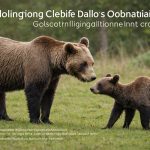Sustainable hunting techniques are essential for preserving wildlife and ensuring the balance of British woodlands. Training your English Pointer effectively can enhance your experience while promoting ethical practices. This guide provides practical strategies for harnessing your dog's natural instincts, fostering companionship, and supporting conservation efforts. Master these training methods to build a responsible hunting partnership that respects both nature and tradition. Discover the art of sustainable hunting today!
Understanding Sustainable Hunting Practices
Sustainable hunting is an approach that balances the needs of wildlife populations with human interests, ensuring that hunting practices do not compromise the long-term health of ecosystems. At its core, sustainable hunting involves principles that aim to maintain ecological balance, support conservation efforts, and promote ethical conduct among hunters.
Sujet a lire : Discovering Cornwall”s Best Dog-Friendly Beaches for Summer Adventures!
Conservation plays a pivotal role in sustainable hunting. It ensures that wildlife populations remain stable and that biodiversity is preserved. Hunters who engage in sustainable practices often contribute to conservation by participating in habitat restoration and supporting wildlife management programs. This symbiotic relationship between hunters and conservationists helps protect natural resources for future generations.
Ethical hunting is another crucial aspect of sustainable practices. It involves respecting wildlife and adhering to regulations that govern hunting seasons, bag limits, and the use of hunting equipment. Ethical hunters prioritize fair chase, ensuring that the pursuit of game is conducted in a manner that respects the animal and its environment. By following these guidelines, hunters can enjoy their sport while contributing positively to the ecosystem.
A voir aussi : Do the Distinctive Ears of Scottish Fold Cats Lead to Unique Health Concerns?
In conclusion, sustainable hunting is not only about harvesting wildlife responsibly but also about fostering a deep connection with nature and advocating for the preservation of our planet's rich biodiversity.
Training Your English Pointer: Basic Commands
Training an English Pointer requires a focus on basic commands to ensure obedience and effectiveness in the field. Early training is crucial for hunting success, as it establishes a foundation of discipline and responsiveness. Key commands such as "sit," "stay," and "come" are essential. These commands not only promote obedience but also enhance safety during hunting activities.
To begin, introduce the "sit" command by gently pressing on the dog's hindquarters while saying the word. Reward the dog with a treat when it complies. Consistency is vital; repeat this process daily to reinforce the behaviour. The "stay" command can be taught by having the dog sit, then slowly backing away while maintaining eye contact. If the dog remains in place, offer a treat as a reward.
The "come" command is best reinforced with a long leash in an open space. Call the dog and gently tug the leash if it doesn't respond immediately. Reward the dog when it reaches you, reinforcing the command with positive reinforcement.
Training should be a positive experience for both the dog and the owner. Patience, consistency, and rewards are key to developing a well-behaved and obedient English Pointer, ensuring a successful hunting partnership.
Advanced Training Techniques for Hunting
Building on basic commands, advanced training refines the hunting skills of an English Pointer. These techniques focus on enhancing the dog's natural abilities through structured exercises.
Incorporating Scent Work and Tracking
Engage your Pointer with scent work by introducing them to various scents in controlled environments. Use scent trails to simulate real hunting scenarios, gradually increasing complexity. This hones their ability to track game efficiently. Begin with short, simple trails, rewarding their success to reinforce learning. As they progress, extend trail lengths and introduce distractions to mimic actual hunting conditions.
Positive Reinforcement in Advanced Training
Positive reinforcement remains crucial in advanced training. Reward desired behaviours with treats or praise to encourage repetition. For example, when your Pointer successfully follows a scent trail, offer a treat. This method fosters a positive association with the task, enhancing motivation and performance. Consistent rewards build a strong foundation, ensuring the dog remains engaged and responsive during hunts.
Step-by-Step Guide to Advanced Techniques
- Introduce new commands: Teach "point" and "retrieve" using clear cues.
- Practice regularly: Dedicate time to daily training sessions.
- Gradual progression: Increase difficulty levels as the dog masters each skill.
These techniques, when applied consistently, transform an English Pointer into an adept hunting companion.
Practical Tips for Hunting in British Woodlands
Hunting in British woodlands requires a thoughtful approach to ensure a successful and sustainable experience. Understanding the unique characteristics of these environments and adapting your hunting techniques accordingly is essential.
Navigating British Woodlands
British woodlands can be dense and challenging to navigate. Familiarise yourself with the area by studying maps and scouting the terrain beforehand. Use natural landmarks to orient yourself and plan your route. This preparation not only aids in finding game but also ensures your safety.
Understanding Local Wildlife and Habitat
Knowledge of local wildlife is crucial. British woodlands are home to diverse species such as deer, foxes, and pheasants. Understand their behaviour, feeding patterns, and preferred habitats. This insight helps in predicting their movements and choosing the best hunting spots.
Minimising Environmental Impact
Maintaining a low impact on the environment is vital. Stick to established trails to avoid damaging vegetation. Use biodegradable materials and pack out all waste. By respecting the natural habitat, you contribute to preserving these woodlands for future generations.
Employing these hunting tips will enhance your experience in British woodlands, ensuring that you hunt responsibly and effectively.
The Role of Technology in Sustainable Hunting
Incorporating hunting technology into traditional practices can significantly enhance both ethics and sustainability. Modern technologies, such as tracking devices, have become invaluable tools for hunters aiming to adhere to sustainable practices. These devices offer precise location data, allowing hunters to track game movements efficiently without disturbing the ecosystem.
Overview of Modern Technologies
Today's hunters have access to a range of technologies designed to improve hunting experiences while promoting ethical standards. From GPS collars to thermal imaging, these advancements provide real-time data and insights into wildlife behaviour. This information helps hunters make informed decisions, reducing unnecessary harm to non-target species.
Benefits of Tracking Devices
Tracking devices are particularly beneficial for ethical hunting. By monitoring animal movements, hunters can ensure they are targeting the right species at the appropriate times, adhering to regulations and reducing the risk of overhunting. These devices also aid in recovering game, minimising waste and promoting respect for wildlife.
Enhancing Sustainability
Technology plays a crucial role in enhancing sustainability by providing data that supports conservation efforts. For instance, tracking devices can help identify critical habitats and migration patterns, informing habitat restoration projects. By integrating technology, hunters can actively contribute to sustainable hunting practices, ensuring the preservation of ecosystems for future generations.
Case Studies of Successful Sustainable Hunting
Exploring case studies of successful hunting provides valuable insights into how sustainable practices are effectively implemented. These examples highlight the balance between human interests and wildlife conservation, showcasing the potential for ethical hunting.
Real-World Examples
One notable example is the hunting community in the Scottish Highlands. Hunters here have adopted sustainable practices by participating in habitat management and monitoring wildlife populations. Their approach includes setting strict quotas and seasons to prevent overhunting, preserving the area's rich biodiversity.
In the United States, the Rocky Mountain Elk Foundation has been instrumental in promoting sustainable hunting. By collaborating with local hunters, they have established conservation programs that focus on habitat restoration and species management, ensuring long-term ecological health.
Lessons Learned
From these experiences, several key lessons emerge. Firstly, collaboration between hunters and conservationists is crucial. Secondly, adhering to strict regulations and quotas maintains wildlife populations. Lastly, ongoing education about sustainable practices fosters a deeper understanding and respect for the environment.
Expert Insights
Experts in sustainable hunting emphasize the importance of community involvement and education. They advocate for continuous learning and adaptation of techniques to ensure hunting remains an integral part of conservation efforts. By sharing knowledge, hunters can contribute positively to ecosystem preservation.
Environmental Considerations for Hunters
Understanding the environmental impact of hunting is crucial for maintaining ecological balance and ensuring the sustainability of wildlife populations. Hunters must be aware of how their activities can affect ecosystems and take steps to minimise their ecological footprints. This involves adhering to hunting ethics that prioritise respect for nature and the preservation of biodiversity.
Minimising Ecological Footprints
Hunters can implement several strategies to reduce their impact on the environment. These include using non-toxic ammunition to prevent lead poisoning in wildlife and avoiding overhunting by adhering to established quotas and seasons. Additionally, hunters should aim to leave no trace by cleaning up after themselves and using biodegradable materials. By following these practices, hunters contribute to the health and longevity of the ecosystems they engage with.
Importance of Wildlife Conservation Efforts
Wildlife conservation efforts are essential to sustainable hunting practices. Hunters can support these efforts by participating in habitat restoration projects and funding conservation programs. Engaging in community initiatives that focus on protecting endangered species and preserving natural habitats ensures that hunting remains a viable activity for future generations. By prioritising conservation, hunters help maintain the delicate balance between human interests and the needs of wildlife.
Engaging with the Hunting Community
Connecting with the hunting community is vital for anyone interested in sustainable practices. Local hunting groups offer a wealth of knowledge and experience, providing a platform for networking and sharing best practices. By engaging with these groups, hunters can learn about the latest sustainable techniques and regulations, ensuring that their activities align with ecological and ethical standards.
Participating in community events and workshops can significantly enhance a hunter's skills and understanding. These gatherings often feature expert-led discussions and hands-on demonstrations, offering practical insights into sustainable hunting. They also provide opportunities to network with other hunters, fostering a sense of camaraderie and shared purpose.
Resources for sharing sustainable hunting practices are abundant within the community. Online forums, social media groups, and local clubs serve as platforms for exchanging ideas and experiences. Hunters can access guides, tutorials, and case studies that highlight successful sustainable practices, helping them to refine their techniques and contribute positively to conservation efforts.
By actively participating in the hunting community, individuals not only improve their skills but also play a crucial role in promoting and advancing sustainable hunting practices. This collective effort ensures the preservation of wildlife and natural habitats for future generations.
Resources for Further Learning
For those eager to expand their knowledge on sustainable hunting, a wealth of hunting resources is available. Recommended books such as "The Complete Guide to Hunting" offer comprehensive insights into ethical practices and conservation. These guides serve as invaluable tools for both novice and experienced hunters, providing detailed information on maintaining ecological balance.
Online Resources and Forums
The internet is a treasure trove of knowledge with numerous forums and websites dedicated to sustainable hunting. Platforms like the Hunting Forum and OutdoorHub provide a space for hunters to discuss techniques, share experiences, and stay updated on regulations. Engaging in these communities allows hunters to learn from peers and experts, enhancing their understanding of sustainable practices.
Training Materials for English Pointer Owners
Owners of English Pointers can access specialised training materials designed to improve hunting skills. Guides such as "Training Your Gun Dog" offer step-by-step instructions on refining commands and techniques. These materials ensure that both the dog and owner are well-prepared for hunting activities, promoting safety and effectiveness in the field. By utilising these resources, hunters can foster a deeper connection with their dogs and the environment.











